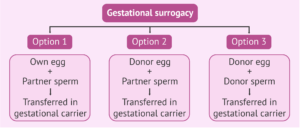By: Christina McCarthy
Hi everyone! It’s so good to be back working as a Reproductive Rights and Reproductive Health intern for the Summer of 2020. These past few weeks Dr. Johnson and I have been working on gathering information for the Louisiana chapter of her book, which will cover the state’s legislative history of gestational surrogacy and artificial insemination. Thus far, I’ve found some noteworthy press coverage on a few of these statutes. One statute I found particularly interesting in my search was H.B. 181. This bill addresses gestational surrogacy, but where the surrogate is a family member of the husband or wife. In contrast to other statutes that require 2 issued birth certificates when a couple uses a non-related surrogate, this one provides instruction for the original birth certificate to list the genetic parents. Oddly enough, it seems that Louisiana lawmakers seem to support the legal rights of the intended parents only when the surrogate is a biological relative. I hope to find more information related to this curious discrepancy!
In addition to researching the legislative history of Louisiana, I have also been looking into Louisiana’s current governor, John Edwards, and the past governor, Bobby Jindal. During his term, Jindal vetoed bills in 2013 and 2014 that sought to establish more legal rights for the intended parents of a gestational surrogacy agreement. In response to his objection to the legislation, Jindal cited moral and ethical objections raised by pro-life and religious organizations in Louisiana. Once Edwards took office in 2016, he tried to reverse similar legislation that was initially vetoed by Jindal. As a future medical student in Louisiana interested in women’s health, I believe it’s important to learn about the legal barriers women face when trying to conceive a child through assisted reproductive technologies. I’m excited to learn more about these issues and eventually see Dr. Johnson’s book come to life!

